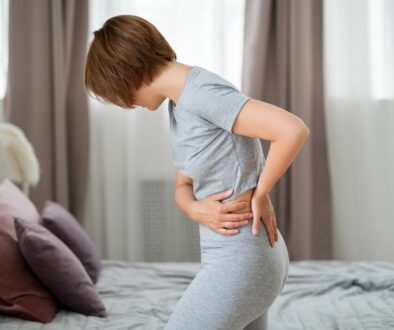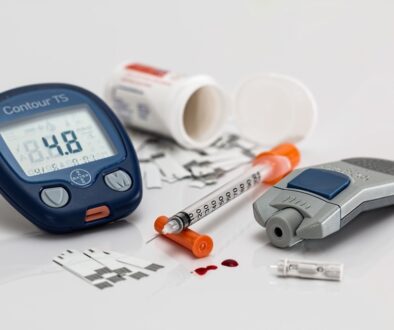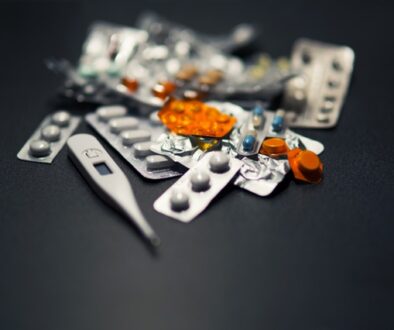Is Caffeine Bad for Your Kidneys? What to Know About Your Cup of Joe
That daily cup (or two) of coffee is something many of us look forward to each day, and as with anything else we enjoy, we hope it’s not harmful to our health. If you are a coffee lover concerned about your kidney health, the question becomes, is caffeine bad for your kidneys?
In this article, we’ll explore the answer to that question – and spoiler alert – put your mind at ease.
Because kidney problems may not always show symptoms, it’s vital to work with our internal medicine physicians in Raleigh to get an annual wellness exam. This gives us a comprehensive overall picture of your health so we can address any issues with your kidneys before they become serious concerns. If it’s been a while since your yearly physical, we encourage you to schedule an appointment.
Is Caffeine Bad for Your Kidneys? How Caffeine Affects Kidney Health
There are several steps you can take to maintain healthy kidneys, such as limiting alcohol intake, keeping your blood pressure in check, exercising regularly and maintaining a healthy weight, drinking plenty of water, and getting an annual physical, among other practices.
If you’re not sure about how to maintain a healthy lifestyle—including a nutritious diet– we encourage you to speak with Nicole Matala, our registered dietitian. She can help you find flavorful foods that prove you don’t have to sacrifice a delicious taste in order to eat healthier.
If you’re concerned about caffeine intake specifically and its impact on your kidneys, the good news is that coffee in moderation is not considered dangerous, according to the National Kidney Foundation. Drinking less than three cups of coffee per day is typically considered safe, including for those with kidney disease.
In a study conducted by Johns Hopkins Medicine, researchers found that consuming one cup of coffee per day may reduce the risk of acute kidney injury, or AKI, when compared to those who don’t drink coffee. Specifically, people who drank any quantity of coffee each day were found to have a 15% lower risk of AKI, while those who consumed two to three cups of coffee a day experienced a 22%–23% lower risk of AKI.
All that said, if you’re focused on your kidney health and still want to enjoy your daily cup of coffee, keep in mind that what you add to your brew can be more of a concern than coffee on its own. Creamers and flavored syrups often contain chemical phosphates that are easily absorbed by the body and can be harmful in excessive amounts for those with kidney disease.
You should talk to your healthcare provider if you have questions about how much caffeine is safe to consume based on any health conditions you may have.
Will Too Much Caffeine Cause Kidney Stones?
Kidney stones form when oxalate, uric acid, and calcium in the urine crystalize. They can cause extreme discomfort and may take from one – three weeks to pass.
The short answer to the question “Will caffeine cause kidney stones?” is no. A National Kidney Foundation study found that daily coffee consumption can reduce kidney stones risk and help prevent kidney stones. Specifically, the study revealed that increasing coffee consumption from one cup a day to 1.5 cups per day decreased the risk of kidney stones by 40%.
Can Caffeine Raise Your Blood Pressure?
Caffeine can cause a short-term spike in blood pressure, especially in those who don’t drink it often. Those who regularly consume caffeine develop tolerance and usually aren’t affected in the same way, but caffeine’s impact on blood pressure can differ from person to person.
Though caffeine is not linked with a higher risk of high blood pressure, you should check with your healthcare provider to ask how much is safe to drink if you have high blood pressure.
Concerned About Your Kidney Health? Our Internal Medicine Physicians in Raleigh Can Help
We encourage everyone to have an annual physical so they can have their kidney function evaluated. This is especially important if you have a family history of kidney disease. Our experienced practitioners can perform a simple blood test and urinalysis to determine how well your kidneys are functioning, and advise you on best practices for keeping your kidneys healthy.
We welcome the opportunity to be your medical home and invite you to schedule an appointment with us today.
The content within this article and others on this website is only for educational purposes and should not be considered as medical advice. For any questions or concerns, please consult with your healthcare provider.
========
Sources:
1. National Kidney Foundation, “Coffee and Kidney Disease,”
https://www.kidney.org/news-stories/coffee-and-kidney-disease-it-safe
2. Hopkins Medicine, “Coffee Consumption Linked to Reduced Risk of Acute Kidney Injury Study Finds,”
https://www.hopkinsmedicine.org/news/newsroom/news-releases/2022/06/coffee-consumption-linked-to-reduced-risk-of-acute-kidney-injury-study-finds
3. Mayo Clinic, “Blood Pressure FAQ,”
https://www.mayoclinic.org/diseases-conditions/high-blood-pressure/expert-answers/blood-pressure/faq-20058543
4. National Kidney Foundation, “New Study Supports Coffee and Caffeine Can Reduce Kidney Stones Risk,”
https://www.kidney.org/press-room/new-study-supports-coffee-and-caffeine-can-reduce-kidney-stones-risk




